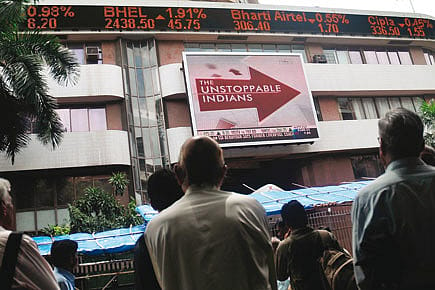Bubble and Bust

Instead of celebrating the Sensex crossing 21,000, get out while there’s still time
There are a number of reasons why. The primary one is that even if all know that these are absurd levels for a stock market to be at, the absurdity can go on for some time before the building comes crashing down. Besides, not asking people to buy means no brokerage.
But come down it will. Consider the last time we hit 21,000. When that bubble burst, a beggared world tried to find answers. What it found was that investment bankers had created financial products out of thin air (or based on suspect home loans in the US) to make notional money. This made more notional money until they ran out of imagination. All that money went into sprucing up bottomlines of companies and stock markets.
This time, there is no notional money. Even bankers are not that foolish. And it is not as if the anticipated growth of companies (the basis on which stock prices rise) has seen any remarkable increase.
Then why is the Sensex at 21,000?
Here you have another stockpile of answers which mean nothing: ‘Foreign institutional investors are pumping in money’ or ‘It reflects the growth story of India’. There is even a theory that because Swiss banks are becoming transparent, Indians who have money there are investing it here.
The safest thing, it is said, is to buy gold. The price of gold has seen an equally crazy rise. But to give an instance of nothing being safe, consider this: if you bought gold in 1980, you would not have made a paisa out of it for 28 years because the price of gold kept falling and plateauing after that.
2026 Forecast
09 Jan 2026 - Vol 04 | Issue 53
What to read and watch this year
One of the most useful concepts of economics is the Greater Fool Theory. It means that when prices or markets rise, everyone gets on the wagon thinking there will be a fool worse than him to buy what he sells. Except that there’s always one last fool standing with empty pockets. You don’t want to be him.
